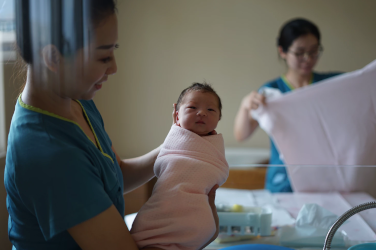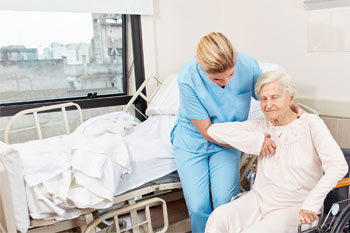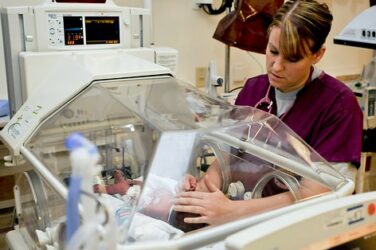Becoming a Midwife – Midwife Courses Ireland

Midwifery is one of those careers that requires a holistic way of being, that is conducive to bringing a new-born into the world. Apart from the formal qualifications required; being completely caring, have a willingness to help other people, calm and kind are the essential pre-requisites to becoming a midwife. The term midwife means to be ‘with woman’ and your role is to be with a mother as she gives birth. Midwifery care is underpinned by a philosophical approach that views pregnancy as part of the life cycle, a normal healthy event. According to the Irish Nursing Board, the concept of partnership between the woman and the midwife is fundamental to midwifery practice and is based on mutual trust, support and collaboration. Midwives work in partnership with obstetricians and other members of the healthcare team in the provision of care, particularly to women with complicated pregnancies.
Therefore, a midwife is a trained professional with special expertise in supporting women to maintain a healthy pregnancy birth, offering expert individualised care, education, counselling and support to a woman and her new-born throughout the childbearing cycle. A midwife works with each woman and her family to identify their unique physical, social and emotional needs. When the care required is outside the midwife’s scope of practice or expertise, the woman is referred to other health care providers for additional consultation or care.
A midwife is assigned a range of specific tasks and duties that include assisting the mother in the birth of her child to the job of introducing the new member of the family. Any given day in the life of a midwife includes: assisting maternal patients to find physical positions that will facilitate childbirth, monitoring maternal condition during labour by checking vital signs, monitoring uterine contractions, or performing physical examinations, providing comfort and relaxation measures for mothers in labour through interventions such as massage, breathing techniques, hydrotherapy, and music.
The midwife is also responsible for setting up or monitoring the administration of oxygen or medications, assessing birthing environments to ensure cleanliness, safety, and the availability of appropriate supplies, assessing the status of post-date pregnancies to determine treatments and interventions, collecting specimens for use in laboratory tests, conducting on-going prenatal health assessments, tracking changes in physical and emotional health, developing/implementing or evaluating individualised plans for midwifery care and finally, establishing and following emergency or contingency plans for mothers and new-borns.
There are a number of HEIs offering the direct entry pre-registration programme onto midwife courses (open to mature applicants, QQI and standard applicants). The Bachelor of Midwifery, Science degree at NUIG is an example of one of the four-year degree programmes. Following successful completion of this programme, students are eligible to apply to register as a midwife with An Bord Altranais. Their programme consists of 24 theoretical modules and 8 clinical modules.
The syllabus for the pre-registration Honours Degree programme contains the following:
- 67% of the theoretical content is the art and science of nursing care
- 33% of the theoretical content is devoted to the applied biological and social sciences (including psychology, sociology, philosophy and ethics)There are also clinical placements to cover all aspects of the role of a midwife. These include: Antenatal, Intra-natal, Postnatal and Specialist placements.
As a mature applicant, you must be successful at the NCC (Nursing Careers Centre) written assessment before being considered for an offer as a mature code applicant. However, success at the written assessment does not guarantee an offer of a place. The written assessment contains a skills/experience questionnaire, a verbal test, a numerical test and job simulation exercise. Mature applicants also apply through the CAO. Most HEIs offering the midwifery programme do recognise certain QQI qualifications for entry to this pre-registration course. It is important to consult with the individual HEIs to discuss their requirements whether you are a mature/QQI/standard applicant.
Whilst you can go directly into a midwifery programme at a Higher Education Institute, you can become qualified as a nurse first and then progress onto a post-registration midwifery course.
Like every other career path that you might be considering, do your homework and find out what being a midwife really means. Get some practical experience if you can. For example, some people work voluntarily as a healthcare assistant to see how they feel about working in this type of environment. Attending open days at the relevant universities are important. Here you will get a real feel for what the course is like on a day to day basis. You can also meet the lecturers which can be really useful. Even better, try arrange a meeting with a practicing mid-wife, who could assist you with all your questions and concerns. And, yes, men can become midwifes too!
For further information, contact An Bord Altranais (The Irish Nursing Board) or view their website at www.nmbi.ie.
To see midwife and nursing courses on Findacourse.ie view the Medical and Healthcare course listings on Findacourse.ie.





